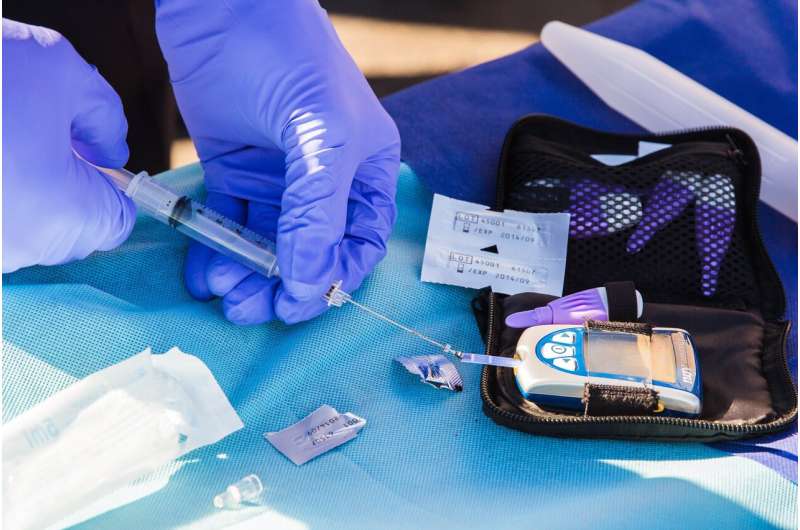Credit: Unsplash/CC0 Public Domain
A team of researchers from King's College London and Monash University has created a database of information that relates COVID-19 and type II diabetes. The team has created the database for two reasons—the first is that research to date has shown people with type II diabetes are more likely to suffer severe symptoms of the disease and to die from it than the general populace. The second is because of mounting evidence suggesting that COVID-19 could actually cause people to become diabetic.
The new database is called the COVIDIAB registry and has been specifically designed to help medical researchers better understand the link between COVID-19 and diabetes. The data was collected from patients regarding their circumstances, including whether they were new-onset. The developers suggest the amount of data will grow as more is learned about the impact of COVID-19 on diabetes patients. Some media outlets have reported that the database already catalogs information provided by 350 clinicians.
It is still not clear why people with diabetes suffer more when infected with COVID-19 or why some suffer more than others. Also unclear is whether COVID-19 can cause diabetes. Since the onset of the pandemic, doctors have been reporting patients developing diabetes soon after contracting COVID-19. The researchers hope that establishment of the database will help to discover whether COVID-19 complications can lead to the onset of diabetes. Doctors need to know if such patients were going to develop diabetes anyway, if they were prediabetic and COVID-19 set it off, or if it is possible for people with no inclination to becoming diabetic to develop the disease soon after developing COVID-19.
Notably, some medical researchers have reported to the press that there are two possible ways that COVID-19 could cause a person to develop diabetes type II. The first is from an attack on the pancreas, reducing its ability to produce and regulate insulin levels. The second could come about as COVID-19 induces an inflammatory reaction in the body impacting blood sugar regulation due to the release of stress hormones. They have also noted that it is possible that some patients may have developed diabetes after being given steroids to treat their COVID-19.
More information: covidiab.e-dendrite.com/index.html
© 2021 Science X Network






















